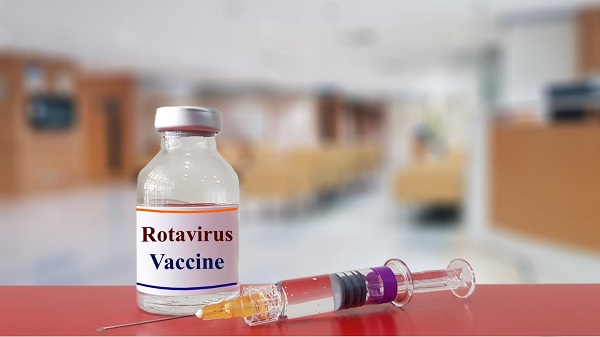
The Federal Government, through the National Primary Health Care Development Agency (NPHCDA), said it has introduced the vaccine against rotavirus into the routine immunization schedule in the country, in recognition of the magnitude of rotavirus-related diarrhoeal diseases.
Speaking during the launch yesterday (August 22, 2022) in Abuja, WHO country representative, Nigeria, Dr. Walter Mulombo said that the government’s introduction of the rotavirus vaccine provides the opportunity to reduce the number of children dying daily from diarrhoeal diseases caused by rotavirus in the country.
Science Nigeria reports that according to World Life Expectancy 2017, more than 160,000 deaths are recorded annually due to diarrhoea in children under five years in the country.
Mulombo said that the country is set to avert rotavirus diarrhoea attributable to hospitalisations and deaths as some children with rotavirus diarrhoea lose a lot of fluids and become dehydrated leading to hospitalization and in some cases eventual death.
“The public health impact of rotavirus vaccine introduction has been demonstrated in several countries with as much as 50 per cent deaths from diarrhoeal diseases averted in some.
“The introduction should be part of a comprehensive strategy to control diarrhoeal diseases with the scaling up of both preventive and treatment packages
Nigeria, being one of the four countries that harbour approximately half the global burden stands to have enormous gains from the economic impact of this introduction,” he explained.
He said that immunisation remains the most cost-effective, public health intervention. Nothing that, unfortunately, the benefits of immunisation were unevenly shared.
“The immunisation agenda 2030 and the GAVI 5.0 strategy seek to address this gap by ‘Leaving no one behind with immunisation’. This is also in keeping with the UN Global Strategy for women, children and adolescents’ health of ending preventable deaths and ensuring health and wellbeing,” he said.
He urged the country to continue to implement these strategies to address gaps in immunisation throughout the life course and prevent deaths.
“If we stop vaccination, deadly diseases will return and when people are not vaccinated, infectious diseases that have become uncommon can quickly return,” he said.
He commended the government of Nigeria for keeping immunisation high on the national agenda.
“Indeed, immunisation is the right of every Nigerian child and the government of Nigeria has sustained this partnership.
“The investments in promoting immunisation through the life course as also demonstrated by the progress in the COVID-19 vaccination is commendable
Even very significant is sustaining the awareness creation on immunisation through network engagement which the African Vaccination Week provides.
“The commemoration of the African Vaccination Week themed ‘Long Life for All’ provides the platform to increase awareness on the importance and values of immunisation and its life-saving potential,” he said.
He, however, assured the WHO’s continued commitment to providing technical support to the introduction of the rotavirus vaccine into the country’s routine immunisation schedule and indeed other health interventions.
The representative of UNICEF Nigeria, Dr. Eduardo Blanco said that investing in primary healthcare centres (PHCs) is a cornerstone for preventing maternal and child mortality in Nigeria, where people die of preventable diseases.
Blanco called on the 36 states’ governments and the Federal Capital Territory to ensure that they invest in their state’s PHCs.
He stated that the country is amongst the few countries that would now have rota vaccines free of charge in all public hospitals across the country.
The representative of the USA’s Centre for Disease Control and Prevention (US-CDC), Prof. Becky Tagbo said that the US government aligned with the Nigerian government in the ongoing efforts to reduce and eventually eliminate vaccine-preventable diseases.
“We are also committed to ensuring that the rota vaccine is available to all eligible children in Nigeria,” Tagbo said.
The 2022 African Vaccination Week will be marked with several events/activities that will bring the message of immunisation to all households and communities while providing the opportunity for all to get vaccinated and receive other high-impact lifesaving interventions.

